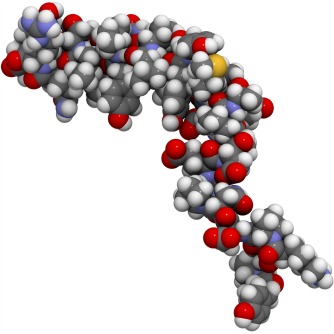NEW STUDY: WHAT TO SLOW AGING
Antioxidant supplements

As medical advances, we are increasing our ability to cure disease and improve longevity. The deterioration of the body with age, however, remains a complex problem.
According to research just published in the journal PNAS by a Portuguese team of the Center for Neuroscience and Cell Biology (CNC) of the University of Coimbra, the researchers may have also solved a big question: how can a balanced diet and a reduced number of calories delay aging and increase longevity?
In their new study, Claudia Cavadas and his team discovered that the key to this diet seems to be its ability to increase autophagy, the mechanism that recycles unwanted molecules in cells, thereby avoiding malfunctioning hypothalamus, which has been identified as the "control center" for aging. The researchers also identified the molecule that controls the process: it is called neuropeptide Y (NPY), and its discovery opens the possibility of using it to develop techniques to control aging, instead of dealing with its consequences, as it does now.
The discovery could be a breakthrough to stop the development of age-related neurodegenerative diseases such as Alzheimer's and Parkinson's. And, in a world of rapid aging, better control of these problems can be crucial for the survival of all.
In fact, according to the UN, in less than a decade, 1 billion people will have more than 60 years in Japan (over 30% of the population has more than 60 years, while in Europe, 16% of the population is over 65 ). So it is clear that the aging population must be kept healthy and active for as long as possible, or will be financially and socially impossible to make the world face. It's no surprise, then, that research to understand and control the effects of aging is a priority.
About a year ago, there was a remarkable discovery that changed the field: the hypothalamus, which is an area of the brain that regulates energy and metabolism, it was identified as the control center for aging the whole body.
For Cavadas and his team, who have worked on aging and neuroscience for a long period of time, this has been particularly exciting. They knew that calorie restriction can delay aging, promote greater longevity and increased autophagy in the hypothalamus. All this, it suggested that this area of the brain and NPY were the key to the rejuvenation effects of caloric restriction.
Therefore caloric restriction seems to work by increasing the levels of NPY in the hypothalamus, which in turn causes an increase in autophagy in neurons, and delay the symptoms of aging.
The age-related neurodegenerative diseases appeared to be unstoppable so far, and represent a great economic and social cost, because patients are totally dependent on their families or the state.
In fact, the United States, more than 5 million people suffer from Alzheimer's (1 million Parkinson), while in the UK the number is approaching 1 million. Just in the care of patients suffering from dementia, the British health system is spending more than £ 26000000000 year (the equivalent of 36 billion euro). The age-related neurodegenerative diseases are already the fourth highest cost, as a disease in the western world.
It will be interesting to try to see if what works in mice tested in the same way in humans. An important calorie reduction is observed in the island of Okinawa in Japan, where people eat on average less than 30% of calories than the rest of the country, and whose inhabitants are among the longest in the world. If it's a coincidence or not, it is certainly interesting to find out, for our society, "junk-food".
Source: Worldhealth
Antioxidant supplements
